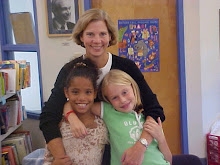 |
| 6th graders are designing a recreational center for the school using Google Sketch Up. |
It is amazing how much the brain changes from baby to kindergartner - parents are constantly awed by it. In this article by Katarina Schwartz, Harnessing the Incredible Learning Potential of the Adolescent Brain, she says that the teen years are akin to the years from birth to 5 for the ability of the brain to grow and develop.
I believe it! In my experience, middle school kids are some of the most passionate learners there are. They need novelty and stimulation, for sure, and when their learning environment also gives them some autonomy, the magic combination spurs them on to amazing feats.
Witness the intensity of learning that happens in 6-7 STEAM Week - the joy kids show when designing and building bridges or launching rockets. Or the concentration and grit it takes for 8th graders to complete a 20 page thesis and prepare and give oral presentations. From thesis topics like Sugar, America's Favorite Drug, or State of Dreams, Panama's Role in the Power of the United States, you can just hear the passion.
Temple University neuroscientist Laurence Steinberg says that without novelty and intellectual challenge in school, teens are bored and they underachieve.
This past Friday, three eighth grade girls asked me if they could organize the whole school in a drive to collect clothing for a local homeless shelter. Because they know they are supported in taking initiative, they have the courage to challenge themselves and to do good for others.
The developing brain of an adolescent is a wondrous thing! Giving it a place and a chance to grow is a no-brainer.



